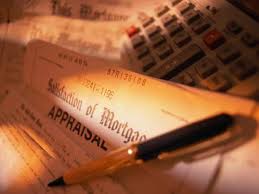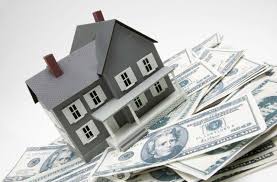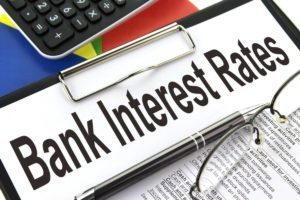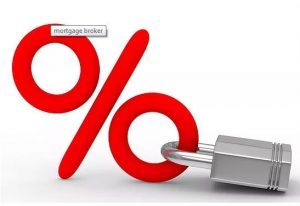
With most of the summer still ahead, it seems like the best time for rest and relaxation. Or… it could mean the perfect opportunity to make those changes around the house that they have been waiting to do since the Spring!
A renovation or remodel on your home could mean excellent returns on your investment. We’ve all seen the TV shows, like Fixer Upper or Love It or List It on HGTV, that demonstrate just how far a fresh coat of paint and decluttering can go to help raise the value of your home when trying to sell it. Sometimes a renovation budget can be as easy as a can of paint but there are other times that you need to add an extra bathroom or bedroom which cost substantially more.
Whatever the reason for your renovation, the question remains: how do everyday people get the money for these fixer-upper projects?
CASH OR CREDIT
For renovations under $5,000, you could probably pay cash or with your credit card. Saving up for these smaller renovation projects can prove very lucrative over the long term, especially if you want to make your everyday living experience a little more comfortable and/or are trying to increase your property value. As we’ve seen on the home renovation shows, the money that is invested in the renovations is likely going to see returns when selling a home.
For projects over $5,000, the projects are more elaborate and may or may not see the types of returns the smaller upgrades can. (Here’s an article with examples of renos that add value, and those that don’t.) However, they mean a lot for your living conditions. When considering these larger projects, there are a number of ways you could find the means to pay for them.
PERSONAL LOANS
The banks will likely suggest a Personal Line of Credit for these types of projects, however, you could also apply for a personal loan from the bank. The personal loan usually has a lower interest and can be paid off through regular payments in a few years. The line of credit may be better suited for ongoing or long-term projects, where you can access funds as you need them, and pay interest only on the amount used.
SECURED LINE OF CREDIT & HOME EQUITY LOANS
A secured line of credit is another option for bigger renovation projects. To secure one, you will likely need a credit score at or above 700 and have a good history of repaying debts in a timely fashion. They offer the advantages of regular lines of credit and loans, plus they often come with preferred interest rates. Since they will likely be secured by your home’s equity, they will require some set-up costs, such as legal fees.
For seniors looking to make adjustments to their home, they can apply for SHARP, the Seniors Home Adaptation and Repair Program. It provides low-interest home equity loans to help seniors with the necessary repairs, adaptations and renovations to their homes, up to a maximum loan of $40,000. In order to qualify, seniors need to have an annual total income of $75,000 (or less) and a minimum of 25% home equity in their primary residence.
MORTGAGE REFINANCING
Refinancing your mortgage may offer some advantages when looking to complete larger-scale renovations to your home. With mortgage interest rates still relatively low, much lower than those on a credit card or loan, refinancing may be an advantageous option. When refinancing, you will likely receive a lower mortgage rate that reduces the overall cost of the loan, ultimately resulting in savings. Refinancing at a lower rate could allow a homeowner to “cash out” with enough funds for the planned home repairs – without an increase in mortgage payments. The additional funds for the renovation are added to the total mortgage and spread out over a longer period of time.
RENOVATING A NEW HOME PURCHASE
If your planned renovations are for a new home you’re thinking about buying, you can also add that cost to your mortgage. If the price of the home (or condo) is $250,000, you can add the $10,000 (for example) renovation budget and secure the mortgage for $260,000, with the same amortization rate. This results in a lower interest rate, compared to a credit card or loan, and allows you to spread repayment over a longer period of time.
GRANTS & REBATES
In good Canadian fashion, the federal, provincial and municipal governments along with local utilities offer grants and rebates for energy-saving renovations. For example, CMHC Green Home offers a premium refund of up to 25%. You may be eligible if you buy, build or renovate for energy efficiency using CMHC-insured financing. Below is a list of other available financial options to help with your environmentally friendly home improvements.
CMHC Green Home premium refund
Environmental incentives (Alberta)
ENERGY STAR® rebates and incentives
Energy Efficiency Alberta (Home Improvement Rebates)
REMEMBER!
Whenever you decide to embark on a renovation project, remember to set money aside for any unexpected costs that may come up. By having this buffer, you are able to adjust your plans without renegotiating your finances or having to reapply for new funds.
Also, every homeowner’s financial needs are unique, so it’s best to meet a qualified professional to explore your options. For help with finding some financial options for your next renovation project, contact a Dominion Lending Centres mortgage professional near you.
Contact me for your best mortgage options 705.669.7798 or trina@ndlc.ca
#trinamortgages #mortgages #ndlc #freedomofchoice
#bestmortgageforme #executive #firstimehomebuyer
If you found this information valuable, I only ask that you share with your friends and family.
Copyright DLC









